
This article is more than
9 year oldFabienne Buccio, the prefect of Pas-de-Calais, said it was "mission accomplished" for the operation, which began on Monday.
The announcement came as parts of the camp continued to burn after fires were set overnight and in the morning.
The camp has become a key symbol of Europe's migration crisis, with its residents desperate to reach the UK.
Since the start of the week, French authorities have been bussing thousands of people to shelters and centres where they will be able to seek asylum.
The operation has gone faster than expected and on Wednesday afternoon Ms Buccio said: "It's the end of the Jungle, our mission is over. There are no more migrants in the camp."
So far, 4,404 migrants have been taken to centres around the country, the prefecture says. Processing is continuing in the camp, reports say, but will end by this evening.
Unaccompanied minors are being accommodated in a temporary centre made out of converted shipping containers near the camp. So far, 1,200 children have been registered, officials say.
The camp had an estimated 6,000-8,000 residents. The BBC's Simon Jones, who is there, says it is possible a large number have disappeared - either to squat or sleep rough around Calais, or go to other towns of their own accord.
The authorities fear they will return to set up camp again once the clearance operation is over.
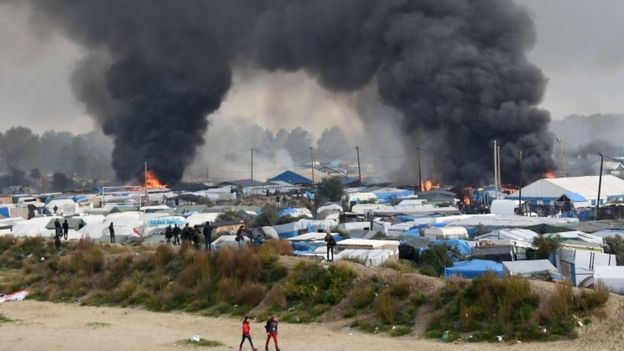
Fires have left the centre of the settlement charred and uninhabitable. French firefighters are now putting out the smoking embers.
Many areas of the camp are now largely deserted. In muddy fields, warrens of tents remain standing and empty.
I saw a small number of migrants who were in no hurry to leave. One group of half a dozen men was sitting down to dinner at a table next to a tent. But I also saw several other migrants carrying their bags towards the buses that will take them away from this region.
At the same time, the French authorities are allowing many hundreds of unaccompanied children and teenagers to remain inside the camp as planned.
The minors are being housed in several orderly rows of white shipping containers surrounded by a fence. I saw groups of teenagers playing football, and others sitting on an embankment.
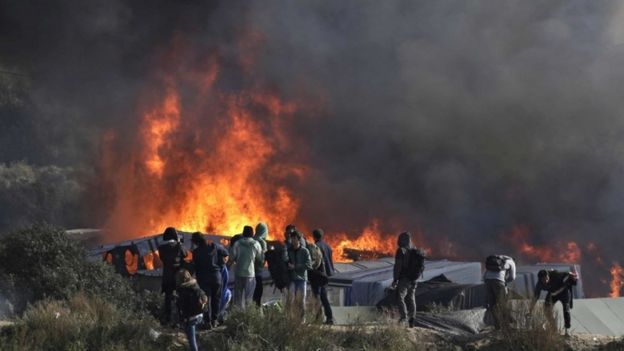
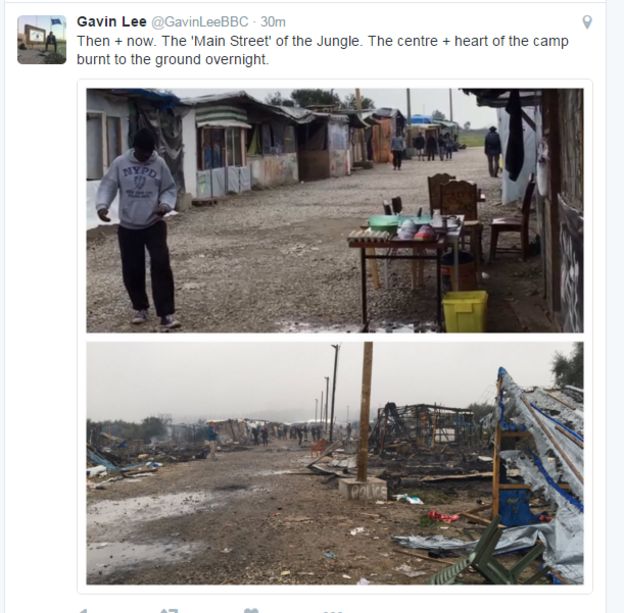
Meanwhile Dorothy Sang, of Save The Children, told the BBC that hundreds of children had not been able to register and enter the area for minors.
The fires had caused many to run away, she said. "We just don't know where those children are now," she said.
Overnight, huts were set on fire on the main street leading into the camp, leaving makeshift shops in ashes. More fires were ignited during the day, but it is not clear who started them.
Ms Buccio told local media it was "a tradition among the migrant population to destroy their homes before leaving".
However the Calais police commissioner said he had been told by migrants that the fires were started by activists.
One man was reported to have been injured when a gas canister exploded in the flames.
More than 1,200 police officers have been deployed for the clearance operation at the camp, which is unpopular locally and has required a large security presence to prevent migrants reaching the UK on lorries or trains heading across the Channel.
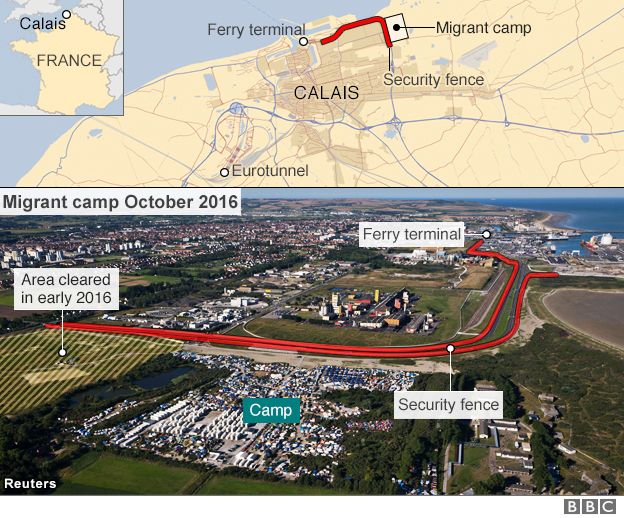
Last year more than one million migrants - many fleeing the civil war in Syria - arrived in Europe. Countries struggled to cope and division arose in the EU over how best to deal with resettling people.
An EU-Turkey pact to try to stop migrants crossing to Greece and moves by Balkan nations to close their borders have driven down the number of people using the so-called eastern Mediterranean route.
However, migrants from African countries such as Eritrea and Somalia as well as West African nations such as Nigeria and the Gambia are continuing to attempt the crossing from Libya to Italy.
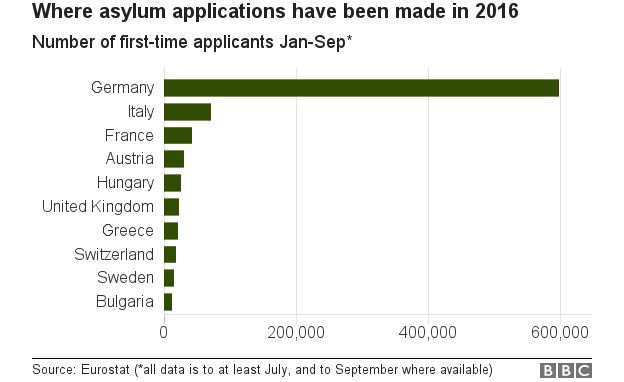
A note on terminology: The BBC uses the term migrant to refer to all people on the move who have yet to complete the legal process of claiming asylum. This group includes people fleeing war-torn countries such as Syria, who are likely to be granted refugee status, as well as people who are seeking jobs and better lives, who governments are likely to rule are economic migrants.